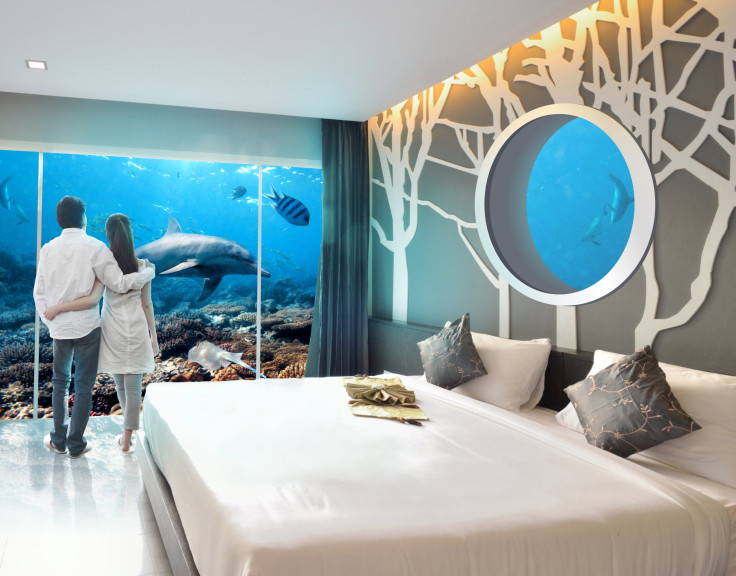Underwater Rooms And Holographic Personal Trainers: Hotels Of The Future

Travel search website Skyscanner.com unveiled the third part of its "Future of Travel" report today, focusing on hotels of the future. Future travelers have a lot of exciting (and sometimes improbable) features to look forward to. Here's a summary of Skyscanner's predictions:
Extreme personalization

Digital technology will make it easy for travelers to "hyper-personalize" every inch of their hotel experience, through their own mobile devices or those provided by the hotel -- all without the aid of any human beings. "Advances in digital technology will mean that travelers will have no need to encounter a single human being from the time they enter their chosen hotel to the time they check out of their room," said Nik Gupta, Skyscanner's director of hotels.
They will be able to control every aspect of their environment, such as temperature and lighting, and even the services they need, such as the types of bath amenities or breakfast choices.
Interactive spaces

But even wilder technology awaits. Ian Pearson, a futurologist who worked on compiling the Skyscanner report, says hotel technology will be so advanced, you can expect holographic systems that project 3D images of personal trainers or friends and family from home.
If that's not enough, your hotel pillow could be tricked out with electronics that actually provide sleep-inducing head and neck massages, and even wake-up calls. Rooms will be outfitted with sensors that can monitor your blood sugar levels and offer personalized dietary advice.
And don't forget the bathrooms: Smart meters will help keep water usage to an efficient level, while motion sensors and galvanic side panels in the shower will help direct the water temperature, flow and water pattern. Chromotherapeutic lighting in the bath will offer different kinds of lighting to help you feel your best (violet light to relax muscles, yellow to aid digestion or soft blue to energize).

Space in space

In just 10 years time, Skyscanner predicts a journey into Earth's orbit will become an affordable option for the luxury traveler (as opposed to, say, just a few billionaires). In fact, a company called World View Enterprises is already planning in 2016 to take passengers nearly 20 miles above the Earth's surface. There, passengers will be able to experience a few minutes of weightlessness and hang out in a pressurized cabin suspended beneath a high-tech helium balloon. The cost of a ticket? $75,000.
"Without question, space tourism will grow and get cheaper," Skyscanner CEO Gareth Williams said. "But what is affordable for the general public is a very arbitrary question given we're a planet of 7 billion people."
Underwater oases

There are already a few underwater hotel suites in existence, like the Jules Undersea Lodge in Florida or the Neptune and Poseidon suites at the Atlantis Hotel in Dubai. But the future will feature entire hotels under the sea. The Water Discus Hotel in Dubai, scheduled to open in 2015, is pioneering the effort. It will be built one mile below sea leave and offer aquarium-style windows in its suites. Guests will be able to exit the hotel directly into the water in their diving gear.
"I suspect that mass underwater exploration and tourism will develop with [a] greater pace than mass space tourism," Williams said.
Forbidden zones
Forget space. Tourism to "forbidden zones" -- the countries and regions previously inaccessible due to conflict or political problems -- are the final frontier. "In the 2020s, countries in these 'forbidden zones' will become hugely attractive because travelers will want to be the first to go to [a] place that their friends have never been to," travel futurologist Ian Yeoman said. Such destinations include, according to the report, Botswana, Angola, Lebanon and Bhutan.
© Copyright IBTimes 2024. All rights reserved.











